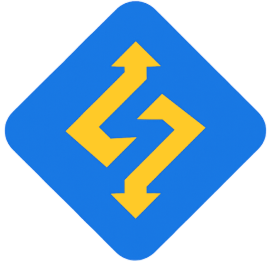
Synct
Effortless Project Flow
A project management app made for builders, not managers. Most project management focuses on getting reports of progress to stakeholders. We asked ourselves, "what if we built project management that actually helps you get things done?". Synct is the result.
Meet the Founder
Entrepreneur with 20 years experience as a professional dev taking projects from 0 - 1 for the companies I worked for. Now doing it myself. Also a licensed commercial pilot, NSCA-CPT, and digital nomad.
The Founder's Journey
The Idea
Synct evolved out of need. Two of us were working to build a browser-based rogue-like game together and needed a tool for collaboration. We tried Trello, and it didn't have what we needed. Notion also failed. As a senior software developer who had just spent the last year+ leading the building of a Trello-like tool for Adobe, I figured "I've always wanted to build a tool that actually works for developers, not just upper management" ... and so built Synct. The original intent was just to build a simple tool to be used on our game project. There was no intent to market or sell Synct. But we found the tool so easy and useful that it became obvious that we needed to share it.
Idea Validation
The concept of project management tools has been validated long ago. We did not need to validate the larger concept. Validating that our own tool was worth putting on the market was a decision made after using it ourselves and feeling that it really is more useful to builders than competitive products.
Development
The development journey has been interesting. We started just by getting what we needed -- a task board, a place to share assets, and a place for documentation. I vibe-coded the initial app off a quick technical specification document because we truly had no intent of every marketing/selling/etc. We were just creating the tool we needed for our own other project. Synct then became a place to experiment with how good I could code with prompts. An experiment in how far I could take vibe-coding. As a professional dev, I found myself often frustrated with the code that was returned. And I found myself doing a lot of manual edits. But then I started learning how to prompt better. I learned to actually speak to it architecturally and to let it write syntax, not build structures or architecture. Eventually, Synct was completely re-written from its original base, and it is now a well-structured, efficient, and secure app built with a combination of manual code-checking and tweaking ... and well-defined prompts that inform the AI exactly how to do things while letting it take care of the easy syntax-type stuff. And that lets us move forward quickly, but with quality.
Marketing & Growth
We do not have any talented marketers on our team. It is probably our greatest weakness. Marketing has been a struggle of an uphill battle with little results to show so far. We post on X using an account that's been stuck at 8 followers for more than a month. We occasionally participate in Reddit. We're dedicated to being authentic and not using any sort of AI auto-posting and we legitimately attempt to engage with others, but have so far found that these channels appear to be almost entirely auto-posted with no one actually engaging. So ... we're looking elsewhere and trying to find channels on which to grow.
Takeaways
Marketing is a massive challenge and distribution is a problem that needs constant attention.
